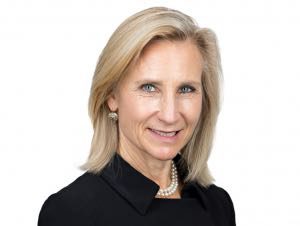International - Written by Barry & Richard on Wednesday, September 5, 2018 7:52 - 0 Comments
New Director of Serious Fraud Office Lays Out Approach
 After less than a week on the job, Lisa Osofsky, new director of the UK’s Serious Fraud Office (SFO), set out her approach to the role in a wide-ranging speech at the Cambridge Economic Crime Symposium. Three areas of focus stood out in her Sept. 3 speech: first, a doubling down on the increasingly U.S. approach taken by the SFO; second, co-operation nationally and internationally; and third, greater use of technology to bring cases more quickly and efficiently.
After less than a week on the job, Lisa Osofsky, new director of the UK’s Serious Fraud Office (SFO), set out her approach to the role in a wide-ranging speech at the Cambridge Economic Crime Symposium. Three areas of focus stood out in her Sept. 3 speech: first, a doubling down on the increasingly U.S. approach taken by the SFO; second, co-operation nationally and internationally; and third, greater use of technology to bring cases more quickly and efficiently.
An Increasingly U.S. Approach (with a UK Twist)
Ms. Osofsky brings with her a wealth of experience in U.S. law enforcement and in the private sector. Speaking about her U.S. law enforcement experience, which gives a strong indication of her likely approach, Ms. Osofsky said the following:
Long before Bob Mueller began investigating Trump, he was Number 3 at the U.S. DOJ, and he sent me to work the BCCI bank failure – and other fraud cases with a U.S. nexus. That was 25 years ago, and I was stationed at the SFO. What was new for the UK, but very familiar to me, was prosecutors and investigators, cops and accountants working side by side throughout the life of the case.
This is how I learned to make cases as a federal prosecutor in Chicago. I did everything the agents did – followed leads, flipped defendants, who later became witnesses, determined best next investigative steps, subpoenaed records and shaped the indictment, all with federal agencies like the Drug Enforcement Administration, Internal Revenue Service, FBI, Health and Human Services department, the Bureau of Alcohol, Tobacco, Firearms and Explosives and local forces working with me. It was federal crime, so white collar, mostly fraud and corruption cases; Chicago had no shortage of those. Of course, powers and practices are different in different jurisdictions.
It wasn’t just working hand in hand with investigators that was part of my DNA as a prosecutor, it was working collaboratively – whether it was across jurisdictions (state, federal, local, international), across agencies (postals, DEA, other Assistant U.S. Attorneys, or District Attorneys or State AGs), or across sectors (bankers, industry heads, accountants – the public and the private).
That’s the way to make strong cases – cases with impact. The most complicated and difficult cases, the cases the SFO makes and will continue to make, require it.
Unsurprisingly, Ms. Osofsky spoke about deferred prosecution agreements, originally a U.S. innovation, and confirmed they are still very much on the table in the right circumstances, noting that she knew them well “having led as the EMEA arm of the biggest monitorship in the world – under a DPA imposed by DOJ…though I’ve also led and worked on others.”
Co-operation, Co-operation, Co-operation
Ms. Osofsky confirmed that in addition to co-operation among the plethora of UK law enforcement agencies, she would also be looking to co-operate internationally and made it clear that she would be doubling down:
Our kinds of cases are becoming increasingly multijurisdictional and complex, so co-operation to achieve global settlements…are ever more important. Strengthening and deepening the relationships that make this happen is going to be a major focus for me.
- Working with the newcomers to DPAs – Sapin II, Argentina, Canada, Australia.
- The SFO hosts secondments and exchange programmes – for example we have a DOJ secondee as of this month. Welcome others, and placements too.
Ms. Osofsky also flagged that she would be looking to reach out to the private sector, too:
Lawyers, solicitors and barristers have a lot to offer in fighting crime, and I intend to reach out to seek their input and ideas. The same is true for academics – I want to make use of new ideas and approaches that are out there.
Technology
On technology, Ms. Osofsky had this to say:
In addition to co-operation in all these areas, I will focus on the SFO’s strategic use of cutting-edge technology. I’ve been at a tech company the past five years; all the while the SFO has been building new technological advances into its systems…
Our cases are some of the most complex and data-heavy criminal investigations in any jurisdiction … As a law enforcement body, we absolutely have to work at pace, and technology can help us do that as well as save money particularly in relation to document reviews…
…And we are exploring use of technology in other areas, including… [i]mproving our Intelligence Function as well as looking at the issue of encryption [regarding] SFO extraction of data from devices … Technology companies need to work with us on this issue.
Rounding up, Ms. Osofsky said that she “very much look[s] forward to joining forces so that our collective efforts result in a level playing field and a safe place for law abiding companies and individuals to do business.”
Conclusion
In recent years the SFO has copied various elements of the U.S. law enforcement playbook in its investigation and prosecution of white collar crime: the lowering of the evidential bar for corporations in relation to bribery with the UK Bribery Act; the introduction of deferred prosecution agreements; and now, a seasoned former U.S. prosecutor at the helm of the SFO. While the SFO’s changes come with a UK flavour, the new SFO director marks a doubling down and acceleration of the increasingly U.S. approach.


